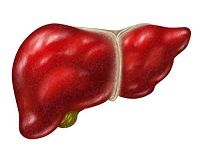Article
Free Hep-C Drugs Key in National Eradication Program Abroad
Author(s):
Despite the hand-wringing over the difficulty of eliminating hepatitis C infection in hard-to-reach groups, the Eurasian nation of Georgia is doing just that, with the help of the US Centers for Disease Control and Prevention. It helped a lot that Gilead is donating the antivirals to wipe it out, the CDC says

Getting free antivirals could go a long way in a public health campaign tackling one nation's hepatitis C epidemic.
The Eurasian nation of Georgia has one of the highest estimated hepatitis C virus infection prevalence in the world. When the new hep-C antivirals became available in 2013, Georgia launched a plan to get them to all its citizens--including prisoners.
Reporting in Morbidity and Mortality Weekly, researchers at the US Centers for Disease Control and Prevention write, the CDC helped design an effective hep-C elimination program. It started in April 2015.
The country had an estimated 6.7% infection rate, one that translated into about 3.7 million cases of hepatitis C infection. Health officials blamed not only injection drug use, but unsafe blood transfusion and handling procedures. Among the nation's prisoners, the infection rate was a stunning 50% of the inmate population.
As part of its eradication program, Georgia's health officials were able to get Gilead Science to donate its antivirals sofosbuvir (Sovaldi) and ledipasvir-sofosbuvir (Harvoni), a drug that costs about $1,000 a pill in the US.. It has donated 5,000 free courses of sofosbuvir and 20,000 free courses of the combo drug.
The CDC came up with plans to do a national seroprevalence survey and then get the drug combo to patients in need.
The agency also assessed the ability of Georgia's laboratories to carry out diagnostic tests and sero typing, as well as rating the capability of the nation's health care system to provide treatment. A CDC-designed survey of people's behavioral risk factors is underway in 6 Georgia cities.
The program also compiles relevant data in a new data managment system that covers demographic, diagnostic, clinical, and pharmacy data on patients.
Georgia is enlisting the help of clinicians, patient advocacy groups, and its media to ensure wide access to diagnosis and care.
Though the country had tried a smaller program offering interferon treatment, the current program is gaining acceptance more successfully. "Increased demand is likely the result of the availability of free, effective, well-tolerated and curative treatment options," the CDC noted.
In addition to curtailing infection in Georgia, the CDC hopes the program will become a model for other nations.





